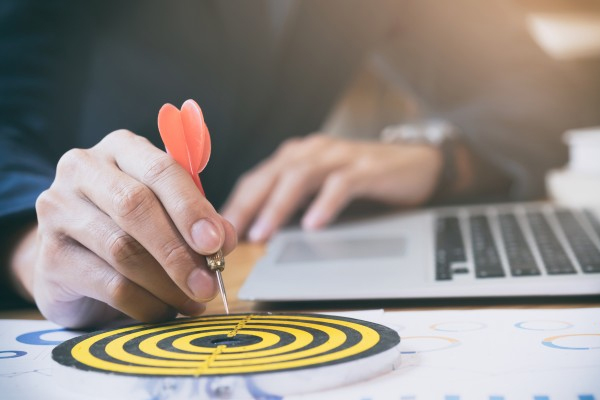Field marketing is one of the many industries that have to change radically if they are to survive this pandemic. As the threat of COVID-19 forces us to do physical distancing, many stores must either limit the number of customers inside their buildings or have to close their doors entirely. Even if people make it into stores, many don’t feel comfortable about getting handed a sample at the end of an aisle. How do you create that same experience without putting people at risk? Field marketing is an important part of brand messaging and it’s a sad day when it goes away. There may be a solution, though. Tim Lambertson and Kelli Frazier are joined by top influencer marketer, Denise Lambertson to talk about the future of field marketing and how influencers can and should play a major role in it.
—
Listen to the podcast here:
[fusebox_track_player url=”https://www.buzzsprout.com/963562/5343280-influencers-are-the-future-of-field-marketing-with-denise-lambertson.mp3″ title=”Influencers Are The Future Of Field Marketing With Denise Lambertson” ]
Influencers Are The Future Of Field Marketing With Denise Lambertson
I thought we would do something interesting. I want to be mindful about the intro here because Denise and Kelli have decided that they wanted to read the lyrics to Cardi B and Megan Thee Stallion’s new track, WAP. That’s a unique idea, especially to be bringing to this podcast. With that, I’m going to turn it over to both of you to read the sweet poetry that is that song. We can break it down the line by line and go deep into what the artists are thinking when they have created it. I’m appreciative of both of you for taking that on.
That is not what we are going to take on, not even close, but I am excited about this topic because this is something that we’ve been talking about for years, and that is how influencers can enhance traditional field marketing. However, this 2020, more than ever in the time of COVID, when the concept of field marketing is different than it ever has been before. Also, the ability to execute field marketing has changed so much that there’s an exciting opportunity to use influencers to help supplement this. This is something that we’ve talked a lot about internally that Denise has written a blog about. I’m excited for us to be able to dive into it and talk more about it. Denise is going to help us first define what we’re even talking about when we talk about field marketing and then talk about what can influencers bring to the table, especially in times like this. Let’s start with the definition of field marketing, shall we?
Think of it as an umbrella term that has a bunch of different kinds of actual realities underneath it. Field marketing as an umbrella term is essentially direct marketing that involves a representative on behalf of the business or the brand interacting directly with customers or potential customers out in the field, out in the real world. What the intent of it is usually to explain the product, answer any questions, sample the product, drive trial and awareness, and create a one-on-one dynamic between potential customers and the brand, which semi-leading statement is very similar to what the intent of influencer marketing is. It’s an interesting and traditional form of marketing, any consumer product or consumer good. It’s exciting to consider it in this new world of social digital influencer.
[bctt tweet=”Influencers are the new field marketers at an age where we cannot give physical handouts to people because of physical distancing.” via=”no”]
Let’s talk a little bit about what that looks like. Especially now where traditional forms of field marketing are basically not an option, what can influencers bring to the table during this time specifically, but ongoing that supplement or even take the place of what we think of as traditional field marketing?
Before I answer that, Kelli, it’s great to think about how they could and how they were in normal times, pre-COVID times and then I can share why it’s even more important now. In pre-COVID times, if you think about the intensive field marketing, which is to add a personal touch, educate, answer questions and be out in the field and drive sampling. Imagine if you were going to hire a brand ambassador to do that and you’re going to educate them on the product and on the business. They’re going to go set up at a workout studio to explain this new beverage or hand things out on the street, which often happens in cities. It all sounds great, but why would you bring somebody on to do that?
That’s an everyday person as opposed to bringing somebody that can do all of that plus the halo of social, do it all and interact, capture content on the go, be able to take the questions that are being asked to them by potential customers and then enter those and amplify them on their social media in real time. It’s such an incredible layer to add on even in pre-COVID times. It makes total sense to take that experience, social. That’s something that we’ve been talking about forever. Why not add a social component to this? It makes so much sense, COVID hits and quarantine happened. We’re not out as much as we used to be.

Even scarier than that is we’re not willing to sample things in a way that we used to. We’re not going to take a sample from somebody’s hand at the end of a Sephora aisle because it’s not as safe as it used to be. Sampling being one of the most valuable forms of converting a new customer, how do you then replicate that experience? That to me is thinking influencers. Influencer, their community is already so trusting of them, they can drive that sampling process in their digital community. There are fun ways that brands can encourage influencers to interact with consumers to make that sampling process educational, to make it engaging and community based. What we used to say before and suggest that people do, and it was hard to get the traditional CMOs and brand managers out of the framework of traditional field marketing thinking it’s worked so well for so long. It’s exciting that now we’re being forced to think about it in a different way.
You make such a great point about it being such an amplifier or such an enhancement to a traditional form of direct marketing. We’ve talked a lot about this across our business that 2020 has presented us with unique opportunities to explore things in different ways. It’s exciting to think about this as that opportunity of how to turn something on, in a space where maybe before it didn’t feel that compelling, but now there’s this entire opportunity to explore something new because we are in these challenging spaces. That’s an exciting opportunity. The other point that you made is that there are a lot of unique ways to activate this that can set brands apart in this space because we are all looking at different ways to sample things.
You’re right about wanting to try products is trial is what drives conversion. Being forced to explore these opportunities and using influencers to do that is a great way for us to layer on influencer where we may not have considered it before. Should we dive into more what influencers can bring to that sampling or product education and maybe even talk about, one of the things that we get asked a lot at the agency is what if I’m trying to target specific places? There’s a misconception that influencers are reaching across a demographic that can’t be that specific. How do we think about addressing that?
[bctt tweet=”Influencers are natural raisers of brand awareness. That skill is easily transferable to field marketing.” via=”no”]
One of the valuable things about working with influencers, especially micros and nanos is the ability to have a highly targeted community that you can get the message to. For instance, if you’re launching a product in a new region and you want influencers to help drive sampling in that region, you can do that. Instead of encouraging influencers to push samples that are sent to them, you can encourage potential customers to go into the store, to ask for it in the store and to ask for the samples there. You can set up couponing within the store that only the influencer has the access to give out to this community. What that does is draws the potential customer into the communication from the influencer, lets the influencer educate them on the product. It puts a lot of emphasis on the actual retailer and where to buy it. Even if people are not ready to sample right then, there’s still offered where it’s available, which is a secondary benefit of this. The potential customer walks into the store with the coupon with the suggestion and the ability to grab the sample from the actual store.
That’s where this whole thing came from. It was walking down the Costco or the BJ’s aisle and taking a little brownie bite from the person that’s baking it right there and then deciding that you needed the brownie bites. In this scenario, it’s a unique way to use somebody who’s hyper-focused on a community and has a network of people in that community that follow them. Now as a retailer use that to drive foot traffic into a store. I want to recap for everybody what we touched on here, Denise, that I thought you got the point across.
We’re emphasizing the point that influencers are field marketers and at a day and age, when you cannot go and get a physical handout from somebody because of social distancing, because we want to be aware of our health. Influencers are a great way to tackle that. Influencers have a hold on the community and on their following within a community. They are a great way to tap. You can use influencers to send out samples or raise awareness around sampling. They are natural brand awareness raisers. I don’t even know if that’s a term. I might’ve created that.

Another way of phrasing that is they’re brilliant at being able to raise brand awareness. They can educate people on the products that you are asking them to educate about. That’s one of the things that content creators and influencers are fantastic at is finding new products or telling you what they’re doing in their life. We get the opportunity to learn from them and then wanted to incorporate that into our own lives. Finally, you can use influencers strategically, especially at the nano level, as Denise said for geotargeting. That is a core benefit there that is something that’s unique. We can be specific about a community, city and location.
Kelli, one of the best ways to use influencers to drive education for sampling is around using some of the social media features that allow question and answer. An idea, an example would be an influencer saying, “For the next hundred people that can answer this question about probiotics accurately, this brand is going to send you a sample of their new product.” The behavior that encourages is somebody to go and look for that answer. While they’re looking for that answer, they’re educating themselves on why they need probiotics. By using that as a fun game to get something free, you’re reinforcing your brand message. We’ve seen this work in ways. On social, we’ve also seen it work with SMS.
I can’t stress enough how the interactivity of this, not to give a sample from an influencer just to give it, but dangle the sample to make potential customers educate themselves and identify why they need this product on their own in order to get the sample sent to them. They’re like, “Here’s a solution right here to the problem that I never knew I had.” The education piece is massive. Influencers in particular can drive that in a way that at scale the traditional field marketers or field marketers without the halo of social impact could have done. I wanted to get that out because it’s more impactful than the geotargeting one as far as a message to potential clients.
Denise and Kelli covered a lot of ground in a very short amount of time. In terms of our “shorts” that was quick. That was succinct and more important than any other of those is it was extremely valuable. Denise, thank you so much for coming onto the podcast and talking about influencers and field marketing and more importantly, influencers are the future of field marketing, especially during COVID. For anyone out there that has a question, that is interested in learning more, Denise, how can we find you on social and how can we slide up into those DMs and ask you questions?
I can be found on both Instagram and Twitter @Hold4Denise. I’m also on LinkedIn, which is one of my favorite social platforms. It’s Denise Lambertson.
Thank you for that. Also, for all of The Postworthy readers out there, we are gearing up to do our very first questions episode. If you have any questions about any of the topics that we have covered so far in any of the episodes, as well as any questions that we have not covered and something that you would like to know, please send us a message. You can find us on social anywhere @LMSTheAgency. You could also send a DM to our Postworthy Instagram account @ItsPostWorthy. If none of those work for you, you can find me, Tim Lambertson, Kelli Frazier and Denise Lambertson all on LinkedIn. We are so grateful to have you as readers. If you have any questions, please let us know. Follow us on social. We look forward to talking to you soon. Thank you so much.
Important Links:
- Instagram – Denise Lambertson
- @Hold4Denise – Denise Lambertson’s Twitter account
- Denise Lambertson – LinkedIn
- @LMSTheAgency – Instagram
- @ItsPostWorthy – Instagram
- Tim Lambertson – LinkedIn
- Kelli Frazier – LinkedIn
About Denise Lambertson

Chairwoman & Founder of LMS